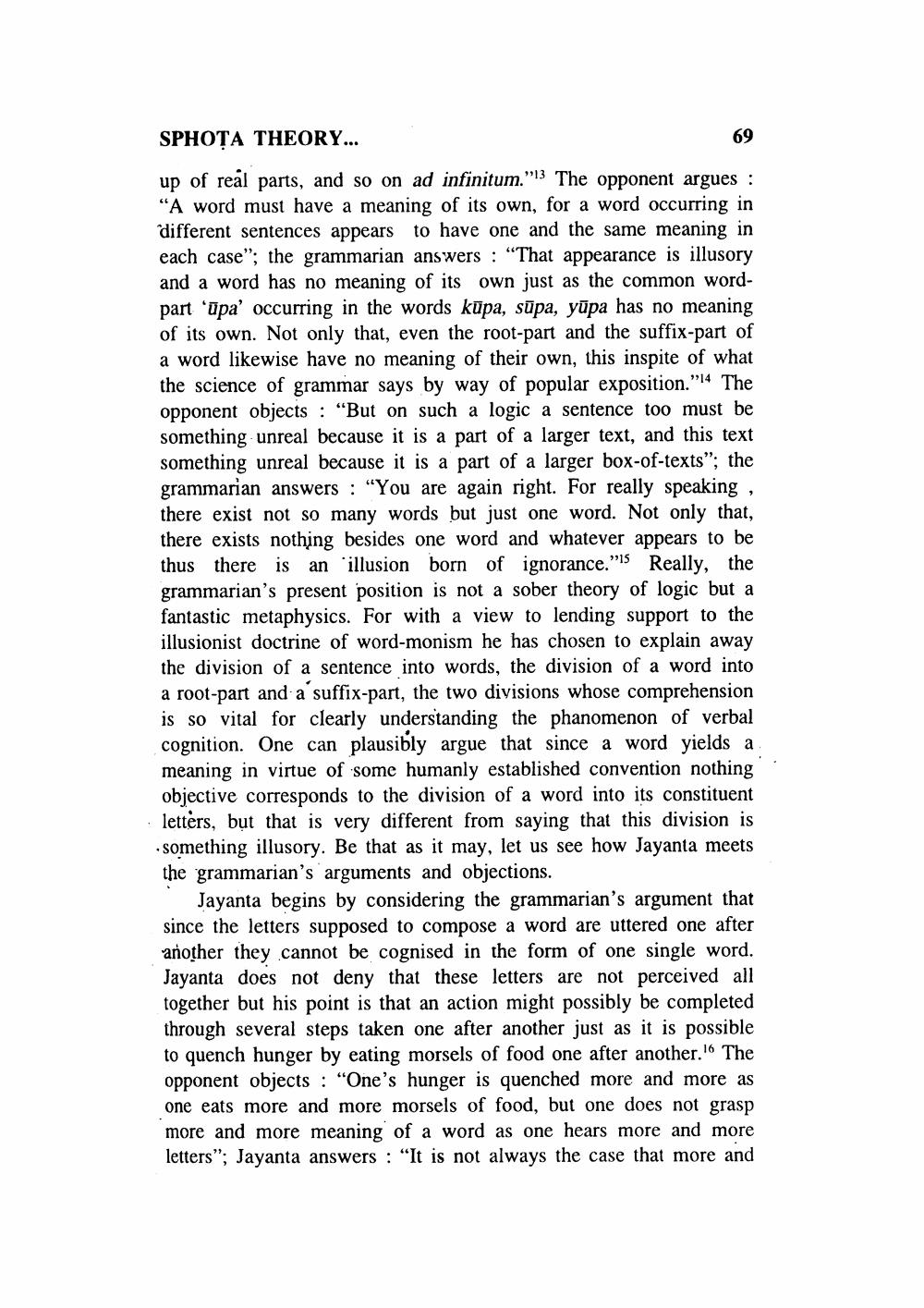________________
SPHOȚA THEORY...
69
up of real parts, and so on ad infinitum."!3 The opponent argues : "A word must have a meaning of its own, for a word occurring in different sentences appears to have one and the same meaning in each case"; the grammarian answers : "That appearance is illusory and a word has no meaning of its own just as the common wordpart 'ūpa' occurring in the words kūpa, sūpa, yūpa has no meaning of its own. Not only that, even the root-part and the suffix-part of a word likewise have no meaning of their own, this inspite of what the science of grammar says by way of popular exposition."!4 The opponent objects : “But on such a logic a sentence too must be something unreal because it is a part of a larger text, and this text something unreal because it is a part of a larger box-of-texts"; the grammarian answers : "You are again right. For really speaking, there exist not so many words but just one word. Not only that, there exists nothing besides one word and whatever appears to be thus there is an 'illusion born of ignorance." Really, the grammarian's present position is not a sober theory of logic but a fantastic metaphysics. For with a view to lending support to the illusionist doctrine of word-monism he has chosen to explain away the division of a sentence into words, the division of a word into a root-part and a suffix-part, the two divisions whose comprehension is so vital for clearly understanding the phanomenon of verbal cognition. One can plausibly argue that since a word yields a meaning in virtue of some humanly established convention nothing objective corresponds to the division of a word into its constituent
letters, but that is very different from saying that this division is •something illusory. Be that as it may, let us see how Jayanta meets the grammarian's arguments and objections.
Jayanta begins by considering the grammarian's argument that since the letters supposed to compose a word are uttered one after another they cannot be cognised in the form of one single word. Jayanta does not deny that these letters are not perceived all together but his point is that an action might possibly be completed through several steps taken one after another just as it is possible to quench hunger by eating morsels of food one after another. The opponent objects : "One's hunger is quenched more and more as one eats more and more morsels of food, but one does not grasp more and more meaning of a word as one hears more and more letters"; Jayanta answers : "It is not always the case that more and




